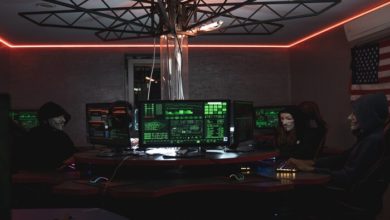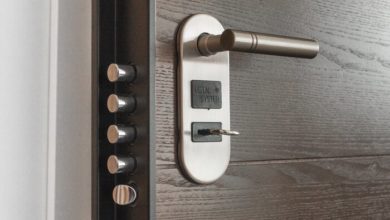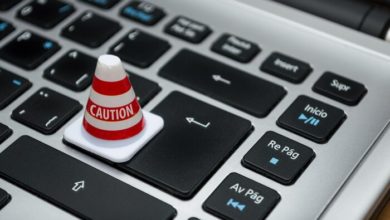How to ensure security while taking online exams at home
KEY TAKEAWAYS
Online examinations have become the new normal as the traditional pen-to-paper method of doing exams is increasingly fading out. However, maintaining security during online exams has been one major challenge for most institutions.
Of course, academic integrity isn’t a new development. Even in traditional learning and exam management, you could hear administrations complain of students cheating. So, what about now that everything is taken online? Will students cheat more? What kind of scenario are examiners facing?
In this article, we have answered some of the questions above and outlined some of the best ways to help curb cheating, and ensure the integrity of examinations is maintained. But first, let’s find out what online examination entails.
Understanding online examination
Basically, most examinations are meant to assess learners’ knowledge and understanding of specific concepts or topics discussed earlier. Therefore, online examination involves conducting tests and exams via the internet.
In other words, online examinations are internet-dependent tests conducted on web-based enabled devices like computers, laptops, or tablets.
How are online examinations done?
All online exams are done through an online examination system-a technology-driven or fully automated system that simplifies exam activities. The system offers practical ways to convert traditional pen-paper examinations to paperless mode, eliminating manual workload.
The system uses online examination software that dictates the criteria in which tests are created, conducted, and evaluated. Therefore, students are to answer questions in pre-decided terms like the exam time frame.
In most cases, the exam period would collapse once the exam time is over. Meaning the learning/training institutions would get real-time reports of the progress.
Here is a simplified version of how the online examination system words:
Creation of exams– it provides the exam administrators with multiple options for creating interactive and practical tests. Most of these online exams are processing module-based, subjective, and objective or multiple-choice questions, which are quickly evaluated to provide results within shorter times.
Conducting the exams– the online examination system and software can conduct large-scale tests irrespective of the individuals’ location. So long as they have the internet, they can log in for the tests.
Proctoring tests– invigilation is a challenge for both the traditional and online setup of examination. Therefore, during online examination, invigilation should become a priority; thus, multiple examination software comes with a proctoring system to ensure a cheat-proof environment.
Evaluation of exam– the foremost good thing about online examination is that tests, reports, or feedback are accurate and instant. The system instantly scores the tests as per the marks assigned alongside tests.
Despite the above-laid-out process of online examination, students would still find ways to cheat during the examination.
Here are some of how students cheat during the online examination
In the traditional exam setting, you would find students jotting down formulas or points on their palms. However, that has become a thing of the past, and the students have gone digital with cheating.
These include:
- Deploying advanced electronic devices
You’ll be wrong if you think that high-tech devices are only used by secret agents. Students, too, have devised new methods of cheating, and they take advantage of the available technological advancements around them.
Some of the technologies that aid students in online cheating are:
- Invisible smartwatches
- Bluetooth-powered earbuds
- Augmented reality glasses
Some of these gadgets may be visually transparent and normal, which means they may be practically undetectable through webcam supervision.
2. Screen sharing
Since exams are done remotely, it would be easier for a student to have a friend logged in with a different computer elsewhere, providing assistance and answers. In some cases, students have even gone to the extent of using team viewer software, allowing them to have another person take exams on their behalf.
In other words, students could fake identities to get third-party assistance.
Now that you know some of how students would cheat, how can you minimize cheating during online examinations?
How to ensure security during an online examination at home
Adopt online proctoring
Online proctoring refers to the activities involved in monitoring and supervision of online exams. In other words, it’s the invigilation of exams from a remote location.
The remote supervision re-creates the typical exam-hall nature and experience through everything that is conducted over the internet. Students have the power to take the exams from whichever location they might be at.
How is online proctoring done?
One of the best parts of online proctoring is the authentication of exam takers. It helps confirm that the person taking the exams is the right individual. This is ensured through:
- Image proctoring– This is where exam software used captures images of students taking exams after particular intervals. It’s key to authorizing and identifying candidates sitting for exams from home. Also, image proctoring is done by capturing the screen of the gadgets the candidates use to know what areas they access.
- Video and voice proctoring-For video proctoring uses live streaming to record the entire examination process, from student recognition to different tabs the student navigates during the exam period.
On the other hand, the voice proctor demands that the student uses their voice as a login password. Meaning the student’s voice would be recorded for verification purposes.
Use secured browsers
It can be one hell of a task to control students’ navigation pages when unsecured browsers are used or when the students have full access to internet pages. That would be an open ground for cheating. However, it becomes easier to bar examiners from browsing during exams.
What is a secure browser?
This is a technology that prevents candidates from opening any other tabs apart from the exam window. It denies the candidates any access to keyboard shortcuts, copy-pasting options, and screen sharing and capturing are wholly prevented.
Besides, some of the software used features an alarm or alert message that would send a warning whenever a candidate tries to open new windows. This ensures exam integrity is upheld.
Audit logging and data encryption
Like security cameras, audit logging is the technology that, when applied, would keep track of all candidates’ entire activities. From their IP address to exam pages, login and log out history. An online examination system will help analyze the audit logs for any suspicious act hence immediately report for counteraction.
Also, encrypting data would play the critical role of preventing unauthorized access to exam questions or avoiding any result manipulation. These features ensure a safe examination.
Conclusion
The security aspect of examination is key to exam integrity and fair competition among candidates. Therefore, to ensure security while taking online examinations, it would be better to deploy online proctoring. Use both image, video, and audio proctoring to boost your exam safety. Also, you can apply audit logging and a secure browser to help monitor the entire student’s navigated pages.





